Thousands March in Santa Barbara to Protect Reproductive Rights
Call for the Supreme Court to Keep the Constitutional Right to Abortion
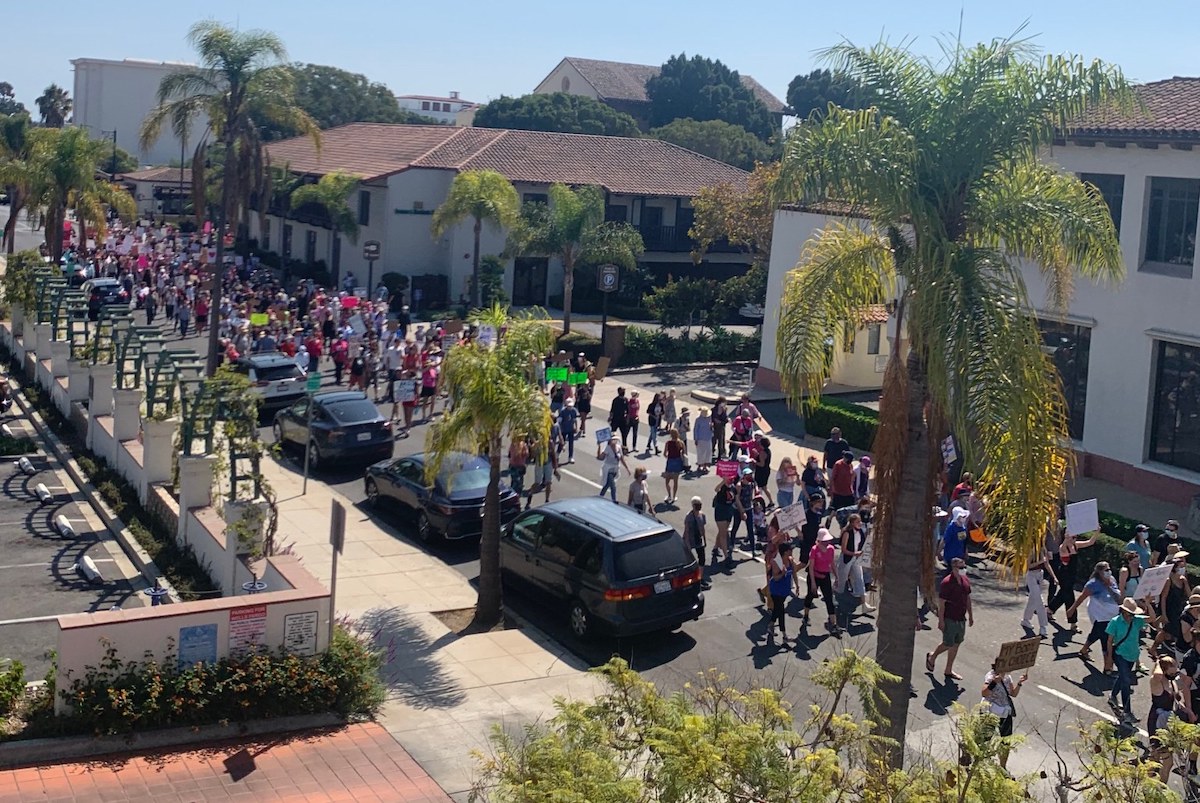
Between 2,500 and 3,000 demonstrators gathered for Santa Barbara’s Women’s March for Reproductive Rights on Saturday, which kicked off in De la Guerra Plaza with a dance number to Whitney Houston’s “I’m Every Woman,” followed by a traditional Chumash ritual and women’s song. The duality was symbolic of a spirit of solidarity and of solemnity in the face of threats to reproductive rights across the country.
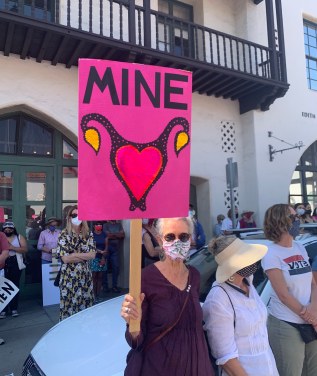
Saturday’s demonstration up State Street was just one of hundreds across the United States protesting anti-abortion legislation that has mushroomed in 2021. And it was the fifth Women’s March for Santa Barbara, which have taken place annually since the 2017 inauguration of former President Donald Trump.
The Texas law banning abortion after six weeks of pregnancy was of particular concern, a period significantly before fetal viability and before most women even know they are pregnant. The bill took effect on September 1 after the Supreme Court refused to enjoin the law based on procedural matters, affecting as much as 85 percent of abortions in the state, according to abortion advocacy groups requesting the injunction. Since then, abortion providers in Texas have been hamstrung, forcing citizens to seek out-of-state assistance and to travel up to 20 times farther for an abortion than before the law took effect.
“You think it doesn’t affect you, but really there are already people coming from Texas needing to get abortions in other states and California,” said graduate student Kana Yamamoto. “It affects everybody; it’s not just Texas.”
According to a July report by the pro-choice Guttmacher Institute, 561 abortion restrictions were introduced across 47 states since January 2021, 90 of which have become law. This represents the most restrictions passed since Roe v. Wade in 1973.
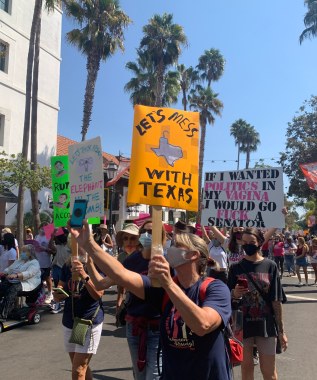
In December, the Supreme Court is to decide on a Mississippi case banning abortions after 15 weeks of pregnancy. Jenna Tosh, CEO of Planned Parenthood California Central Coast, emphasized in her speech to demonstrators what is at stake if Roe v. Wade is overturned by that decision: “26 states would likely ban abortion before the end of next year. Nearly half of U.S. people who become pregnant could lose their reproductive rights overnight. It’s not only outrageous, it’s unacceptable.”
Many shared concerns that anti-abortion sentiments may even gain a foothold in California.
“We used to live in Texas, so this is very close to home. We’re thankful we live in California, but we don’t want those ideals to end up here,” said Kelly O’Connell, who came to the march with her mother, Cindy.
Addressing the attendees before the march, State Senator Monique Limón also expressed urgency for California residents, recalling anti-abortion ideologies revealed by the recent gubernatorial election. “In a moment and in a world where we believe that this could never ever be the scenario of California, we started to see elements that could bring this scenario to become a reality. And that is what is at risk.”
Though urgency had its place in the march, a spirit of inclusivity and solidarity remained at the forefront.
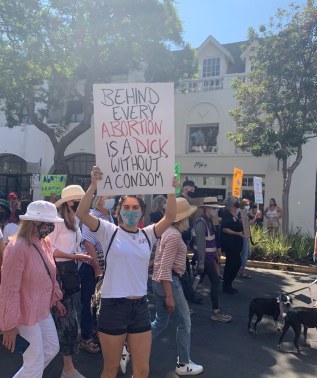
“It’s not only about women’s health-care rights, but it’s always also about Black Lives Matter. If our country was to actually face the atrocities against Black people, we wouldn’t be here right now,” explained Charlotte Moore, a member of Santa Barbara’s Women’s Political Committee.
Dalia Khan, who said she was a county employee, also underscored that “everybody needs to stand up for everybody else’s rights. Women’s rights are human rights.”
Among participants were mothers and daughters, families with children, college students, and activists who took part in hallmark feminist protests of the 1970s. Marchers spanned generations, simultaneously demonstrating how passion for reproductive rights as well as barriers to abortion persist into the present.
Just before demonstrators began chanting “My body, my choice” up State Street and to the Santa Barbara County Courthouse, former state senator Hannah-Beth Jackson stood before the crowd and summed up the long arc of feminist activism that although tiring, remains tireless:
“Before January 22nd, 1973, we were here screaming for the right and the dignity to make our own reproductive decisions. It is now October 2021 and to quote a sign out there: I can’t believe we’re still fighting for this shit.”
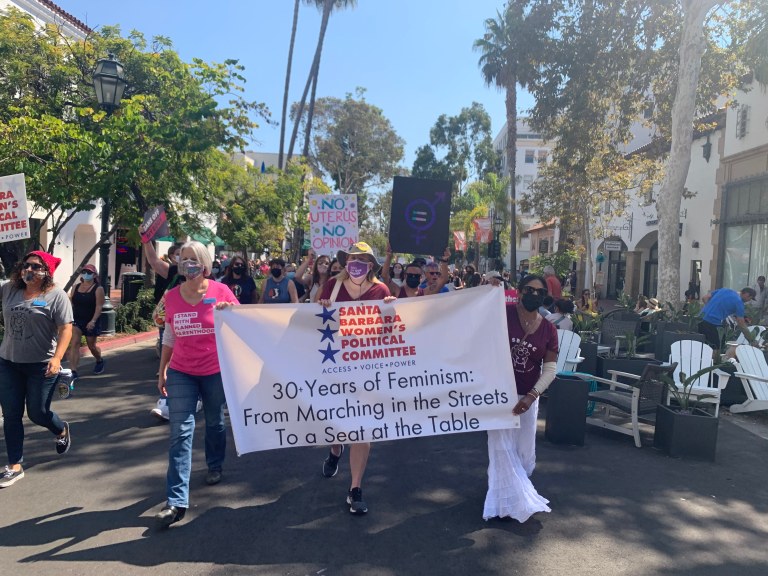
Support the Santa Barbara Independent through a long-term or a single contribution.




You must be logged in to post a comment.